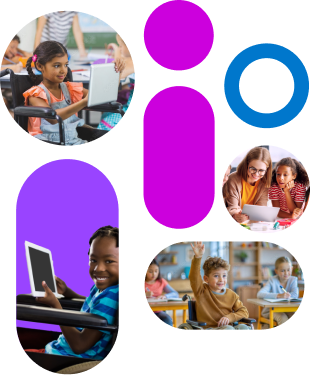Benetech and InABLE Host Accessibility Workshop for Kenyan Publishers
Bookshare could not reach the scale that it has today without the partnership of more than 900 publishers worldwide. Partnering with local publishers is key to ensuring that people with reading barriers in each country where Bookshare operates can access the books that they most need, such as educational materials, in local languages. Martin Kieti, who leads Bookshare outreach in Africa, recently hosted a workshop with inABLE and the DAISY Consortium for publishers in Kenya to learn about the Global Book Famine for people with reading barriers, and the importance of digital accessible books. Read this blog from Esther Njeri Mwangi, Public Relations Officer at inABLE for a recap of the workshop.
inABLE Organizes Publishers’ Induction on Accessibility for People with Print Disabilities Workshop
[inline_module class_name=’Benetech__Image’ instance=’0′]
On Friday, February, 26th, Kenyan publishers were invited to attend a Publishers’ Induction on Accessibility for People with Print Disabilitiesworkshop at the Lenana Swiss Mount Hotel in Nairobi Kenya . This event was hosted by inABLE in partnership with Benetech and the Daisy Consortium with a purpose to raise awareness on the global campaign to end the book famine and the role of publishers in promoting access to published works for Kenyans with print disabilities.
Martin Kieti, Head of Benetech and Daisy Consortium in Kenya was leading the induction. He described the book famine as the global scarcity of books in formats that are accessible to people with print disabilities. He explained, “Some of the major reasons for book famine are national copyright laws that prohibit the reproduction, distribution and sharing of protected works without permission from authors and the territorial nature of copyright laws which restrict the cross-border exchange of protected works.”
There are almost a billion people with print disabilities such as blindness, visual impairment, and learning disabilities like dyslexia. However, the World Blind Union estimates less than 10% of all published works are accessible to people with print disabilities globally, and less than 1% in developing countries.
The World Intellectual Property Organization (WIPO) administered the Marrakesh Treaty to facilitate access to published works for persons who are blind, visually impaired, or otherwise print disabled in 2013, and enforced it on September 30, 2016. There are currently 193 WIPO member-states (105 of whom have ratified the Marrakesh treaty) globally and Kenya was the first African country to implement the Marrakesh Treaty into law in October 2019.
It was mentioned that the authorized entity in Kenya, Kenya Institute for the Blind (KIB), has the authority to chop, scan, and convert hard copies of published works into accessible format copies. This is because of the lack of accessible formats from the Kenyan publishers, which leaves out people with print disabilities in Kenya.
Kieti added, “The main types of accessible formats for people with print disabilities, include Braille, large-print, talking book or audio book, E-book or digital text, and tactile graphics. All these formats must include navigability, synchronized perception channels, and machine-readability features.”
At the end of the induction, Kieti recommended the following steps towards reducing the book famine in Kenya and the World:
- Capacity development for accessible publishing by taking Accessible Books Consortium (ABC), DAISY or WBU courses on accessible publishing and on the Marrakesh Treaty.
- Collaboration with local agencies on the Kenya Visionary Learning Initiative to promote the right to read for people with visual impairment.
- Commitment to help end the book famine by signing the ABC’s Charter for Accessible Publishing
- Compliance with international accessibility standards like EPUB3, DAISY and WCAG.
- Contribution of titles to accessible content repositories like the Global Book Service and Bookshare.
In 2020, the inABLE team completed book digitization training and creation of accessible books (contents) by producing both accessible word, PDF and EPUB (eBooks) courtesy of the Daisy Consortium. inABLE is now working to digitize 10, 000 pages of accessible formats to be circulated to over 1,000 students in the Computer-Lab-for-the-Blind program in partnership with Foreign, Commonwealth and Development Office (FCDO).
inABLE would like to thank FCDO for their support towards making the induction workshop a success. We would also like to recognize the following publishers for making time to attend:
- Kenya Institute for the Blind (KIB)
- Catholic University of Eastern Africa Press
- Queenex Publishers Limited
- Moran Publishers
- eKitabu
- Oxford University Press East Africa
- Parents Magazine Africa
- Big Books Ltd
- ARBA Publications
- Tusome Publishers
- Redemptor’s Touch
- Daystar University Research and Publishing Centre
- World Reader
- Jomo Kenyatta Foundation (JKF)
- Longhorn Publishers
- Kenya Literature Bureau
- Atfaal Publishers
Written by: Esther Njeri Mwangi, Public Relations Officer, inABLE
This blog was reposted with permission from: https://inable.org/index.php/2021/03/04/publisher-digital-accessibility-workshop/
Read about Benetech’s work with St. Matthew’s Publishing Corporation in the Philippines.
